Buena Vista Social Club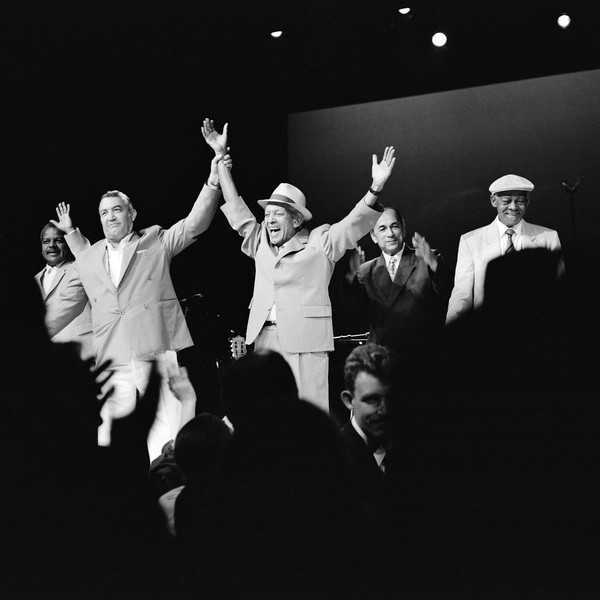 | ||
| Allmusic Biography : Less a band than an assemblage of some of Cubas most renowned musical forces, Buena Vista Social Clubs origins lie with noted American guitarist Ry Cooder, who in 1996 traveled to Havana to seek out a number of legendary local musicians whose performing careers had largely ended decades earlier with the rise of Fidel Castro. Recruiting the long-forgotten likes of singer Ibrahim Ferrer, guitarists/singers Compay Segundo and Eliades Ochoa, and pianist Rubén González, Cooder entered Havanas Egrem Studios to record the album Buena Vista Social Club; the project was an unexpected commercial and critical smash, earning a Grammy and becoming the best-selling release of Cooders long career. In 1998 he returned to Havana with his son, percussionist Joachim, to record a solo LP with Ferrer; the sessions were captured on film by director Wim Wenders, who also documented sell-out Buena Vista Social Club live performances in Amsterdam and New York City. (Wenders film, also titled Buena Vista Social Club, earned an Academy Award nomination in 2000.) The publics continued interest in Cuban music subsequently generated solo efforts from Segundo and González, as well as a series of international live performances promoted under the Buena Vista Social Club aegis. A concert CD, At Carnegie Hall, drawn from the same triumphant show that Wenders featured in his documentary, was released in 2008 -- a few years after the deaths of Segundo, Ferrer, and González. In the spring of 2015, Nonesuch/World Circuit released Lost and Found, a collection of unreleased tracks from the 1996 Egrem and 2000 recording sessions, as well as live tracks. A group containing some of the original members called Orquesta Buena Vista Social Club continued to tour, and their farewell tour took place that year. | ||
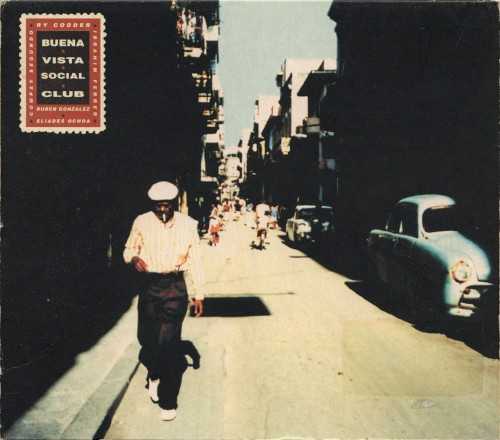 | Album: 1 of 4 Title: Buena Vista Social Club Released: 1997-06-23 Tracks: 14 Duration: 59:12 Scroll: Up Down Top Bottom 25% 50% 75% Spotify Wikipedia Allmusic AlbumCover | 1 Chan Chan (04:18) 2 De camino a la vereda (04:59) 3 El cuarto de Tula (07:22) 4 Pueblo Nuevo (06:03) 5 Dos gardenias (02:59) 6 ¿Y tú qué has hecho? (03:10) 1 Veinte años (03:27) 2 El carretero (03:26) 3 Candela (05:25) 4 Amor de loca juventud (03:18) 5 Orgullecida (03:16) 6 Murmullo (03:48) 7 Buena Vista Social Club (04:48) 8 La Bayamesa (02:51) |
| Buena Vista Social Club : Allmusic album Review : This album is named after a members-only club that was opened in Havana in pre-Castro times, a period of unbelievable musical activity in Cuba. While bandleader Desi Arnaz became a huge hit in the States, several equally talented musicians never saw success outside their native country, and have had nothing but their music to sustain them during the Castro reign. Ry Cooder went to Cuba to record a musical documentary of these performers. Many of the musicians on this album have been playing for more than a half century, and they sing and play with an obvious love for the material. Cooder could have recorded these songs without paying the musicians a cent; one can imagine them jumping up and grabbing for their instruments at the slightest opportunity, just to play. Most of the songs are a real treasure, traversing a lot of ground in Cubas musical history. Theres the opening tune, "Chan Chan," a composition by 89-year-old Compay Segundo, who was a bandleader in the 50s; the cover of the early-50s tune "De Camino a la Verada," sung by the 72-year-old composer Ibrahim Ferrer, who interrupted his daily walk through Havana just long enough to record; or the amazing piano playing on "Pablo Nuevo" by 77-year-old Rubén González, who has a unique style that blends jazz, mambo, and a certain amount of playfulness. All of these songs were recorded live -- some of them in the musicians small apartments -- and the sound is incredibly deep and rich, something that would have been lost in digital recording and overdubbing. Cooder brought just the right amount of reverence to this material, and it shows in his production, playing, and detailed liner notes. If you get one album of Cuban music, this should be the one. | ||
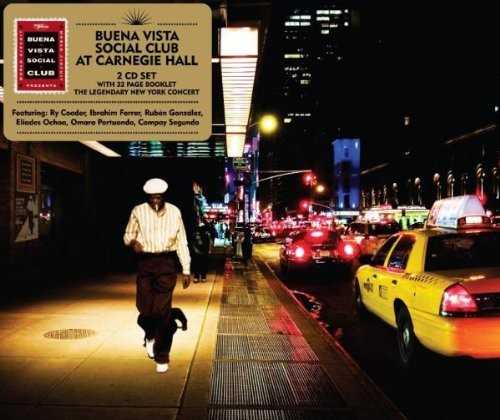 | Album: 2 of 4 Title: At Carnegie Hall Released: 2008-10-13 Tracks: 16 Duration: 1:17:38 Scroll: Up Down Top Bottom 25% 50% 75% Spotify Allmusic AlbumCover | 1 Chan Chan (04:45) 2 De camino a la vereda (04:58) 3 El cuarto de Tula (08:00) 4 La engañadora (02:44) 5 Buena Vista Social Club (05:59) 6 Dos gardenias (04:23) 7 Quizás, quizás (03:47) 8 Veinte años (04:06) 1 Orgullecida (03:23) 2 ¿Y tú qué has hecho? (03:33) 3 Siboney (02:32) 4 Mandinga (05:29) 5 Almendra (05:49) 6 El carretero (05:38) 7 Candela (07:00) 8 Silencio (05:25) |
| At Carnegie Hall : Allmusic album Review : It seems very strange that World Circuit/Nonesuch would wait ten long years to issue this historic document of the grand, wildly celebrated Buena Vista Social Club concert at Carnegie Hall. This is the very show so wonderfully and artfully detailed by filmmaker Wim Wenders in his documentary on the project that reunited these then-obscure Cuban music legends for an album and a tour and catapulted them to worldwide fame. Perhaps it was worth the wait; perhaps this music should have been in our midst all along. Of the four older legends, those who had made music together in Cuba before Castro, only Omara Portuondo remains on the Earth, and she is still quite active. The other three, vocalist Ibrahim Ferrer, pianist Rubén González, and guitarist and vocalist Compay Segundo, have passed away -- Segundo lived to be 96! The youngster of the group, guitarist Eliades Ochoa, continues to record and tour. One thing the music on this lavishly packaged double-disc set does accomplish, however, is reveal without doubt that the music in the film is as profound, sensual, and beautiful as it was when accompanied by images. It is true that eight of the songs that appeared on the eponymous studio album are replicated here, but these live versions blow them away. In addition, the 16 songs here, covering two full discs, offer extended instrumental workouts to go along with the glorious vocals, making each tune -- from the opening "Chan Chan" all the way through to the glorious bolero "Silencio" duet between Ferrer and Portuondo -- reflect all of the lived history not only of the singers, but of the entire era for an audience to behold. Segundos rich and lived-in baritone inhabits disc twos opener, "Orgullecida," so fully that no one should ever be allowed to cover it again. As is the standard for Nonesuch, the sound of the evening is fantastic, the spark in the mix has been left in, and the backing band sounds as varied and tight as it did in the film. The enclosed booklet contains Jon Pareles original New York Times review of the performance and reminiscences from many of those involved in the evening, including Omara Portuondo and producer and backing guitarist Ry Cooder. This set is every bit as necessary as the solo albums by the singers, and perhaps even more than the studio effort. It is not only a historical document; it is a living, breathing piece of work that guarantees the transference of emotion from tape to listener, and cements the Buena Vista Social Clubs place not only in the Latin music pantheon, but in the larger context of popular music history. | ||
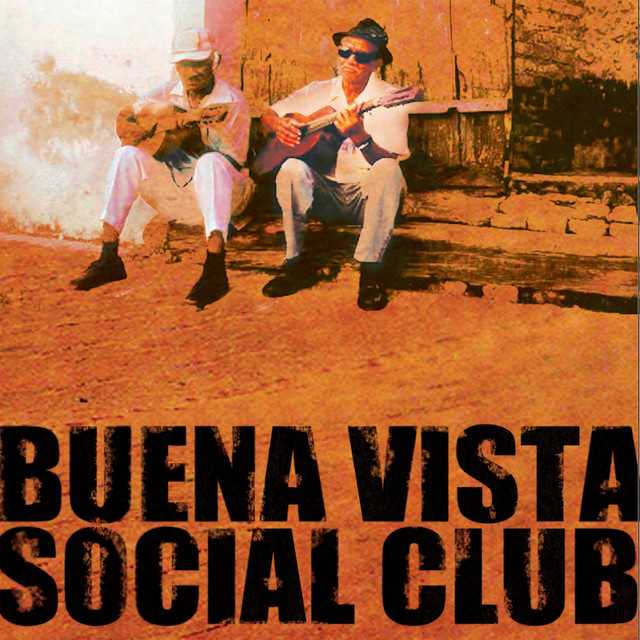 | Album: 3 of 4 Title: Realidad en vivo Released: 2012-04-25 Tracks: 5 Duration: 27:48 Scroll: Up Down Top Bottom 25% 50% 75% Spotify AlbumCover | 1 Realidad y fantasia (03:19) 2 Me bote de Guano (05:07) 3 Medley: A moron / Tres Marias / Mujers (07:38) 4 Guajira en FM (05:44) 5 El cuarto de Tula (06:00) |
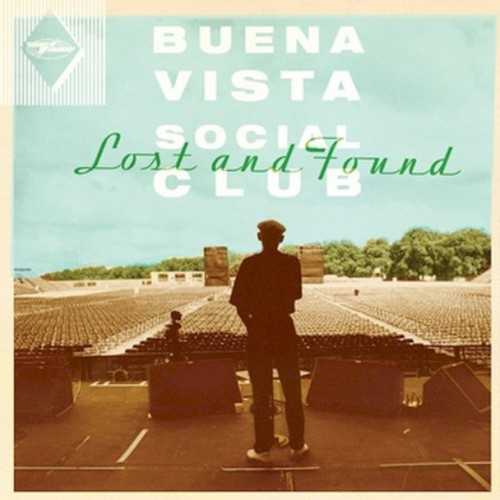 | Album: 4 of 4 Title: Lost and Found Released: 2015-03-23 Tracks: 14 Duration: 47:41 Scroll: Up Down Top Bottom 25% 50% 75% Spotify Allmusic AlbumCover | 1 Bruca maniguá (live) (05:15) 2 Macusa (04:04) 3 Tiene sabor (03:17) 4 Bodas de oro (04:39) 5 Black Chicken 37 (03:33) 6 Habanera (02:16) 7 Como fue (live) (04:00) 8 Guajira en F (04:21) 9 Quiéreme mucho (01:28) 10 Pedacito de papel (02:37) 11 Mami me gustó (live) (05:18) 12 Lágrimas negras (04:04) 13 Como siento yo (live) (01:53) 14 Rubén Sings! (00:48) |
| Lost and Found : Allmusic album Review : Its hard to believe that it took Nick Gold and his World Circuit team to plunder the vaults for unreleased Buena Vista Social Club recordings. This loose-knit group of all-but-forgotten all-star musicians from pre-Revolutionary Havana was assembled by Juan de Marcos González and American guitarist Ry Cooder -- and supported by a cast of players they influenced -- to record its self-titled 1997 album that went platinum in the wake of Wim Wenders 1999 film of the same name. Its members subsequently recorded solo and together, and various versions of the group have continued to tour internationally, but some of its foundational members have since passed on -- singers Ibrahim Ferrer and Compay Segundo, pianist Rubén González, bassist Orlando "Cachaito" Lopez, and bassist Miguel "Angá" Díaz. Lost and Found compiles unreleased vault tracks from the original 1996 EGREM studios sessions, live tracks, and rehearsal sessions from subsequent albums. But this music is anything but a hodgepodge, half-baked assortment. It is assembled with care and attention to the groups legacy. For starters, opener "Bruca Manigua" is one of three excellent live tracks to feature Ferrer on his 2000 tour in support of his debut album, backed by a killer large band. "Macusa" is a vocal duet between Eliades Ochoa and Segundo from the 1996 sessions. The pair delivered the albums standout hit, "Chan Chan." Omara Portuondos gorgeous reading of the Cuban standard "Lágrimas Negras" could have easily made the cut on the 1997 album; that it didnt is a head scratcher. Likewise, "Tiene Sabor" is sultry and steamy; its all roiling passion underscored by a saucy female backing chorus and a sizzling violin solo. (This may be the albums finest track.) "Black Chicken 37," a duet between Díaz and Cachaito (playing arco), reveals the improvisational power in Afro-Cuban jazz. Two solo tracks by Ochoa, the guitar instrumental "Quiéreme Mucho" and the bolero "Pedacito de Papel," are haunting in their intimacy. They were recorded after-hours during the album sessions. González is also represented handsomely and poignantly: first by his last ever recorded solo on "Bodas de Oro," a swinging danzón from a session led by trombonist Jesús "Aguaje" Ramos; by the elegant live piano solo "Como Siento Yo"; as well as by his informal scat singing on set closer "Rubén Sings!" Lost and Found is better served as a companion volume to the painstakingly curated Buena Vista Social Club album than as a general listeners introduction to the various musicians. That said, for anyone who ever wished there was more music in the can, this all-killer, no-filler program is indispensable. | ||